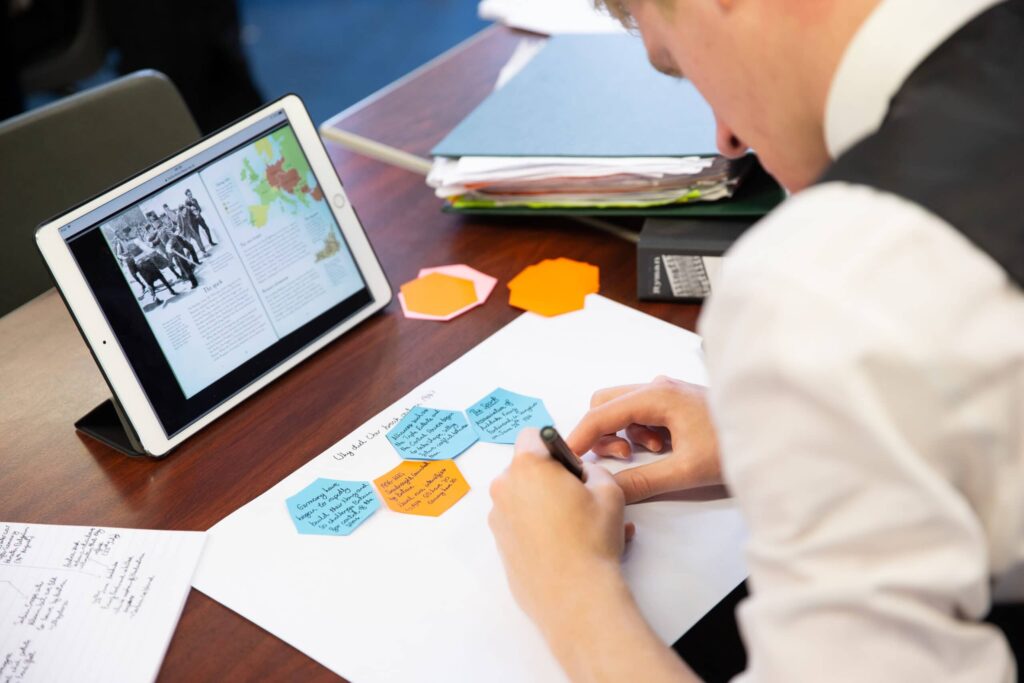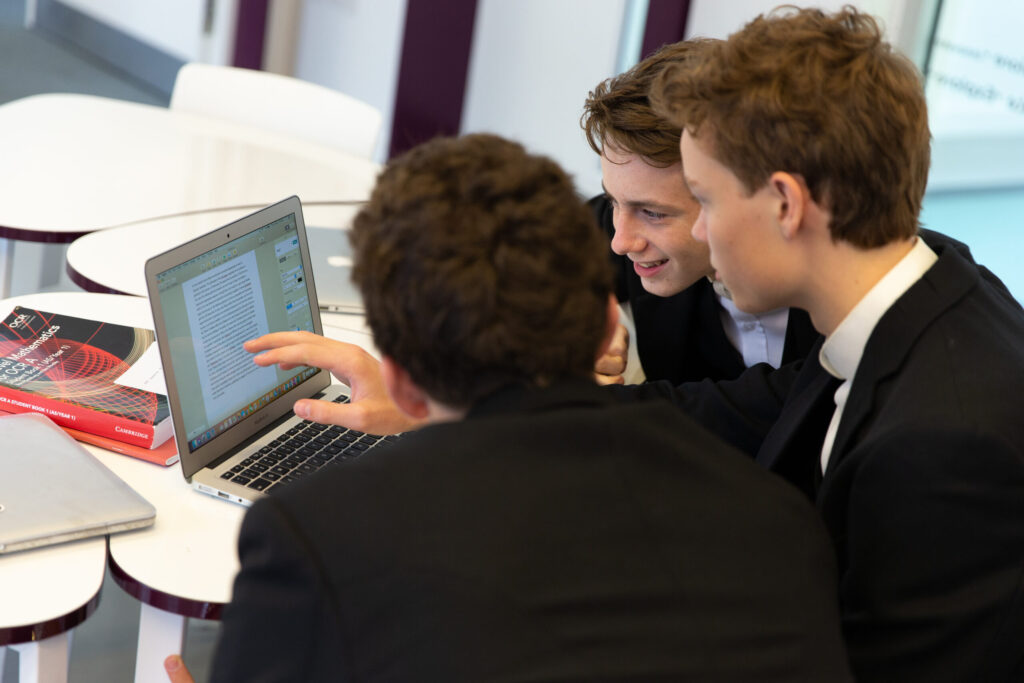As the majority of students sitting their exams have now reached or passed the mid-way point, it is important that they do not lose momentum. This week’s blog post focuses on how we can continue to support students with their revision and ensure they remain motivated for the duration of the exam season.
How to keep the momentum going
For the majority of Year 11 and Year 13 students, revision began before the Easter holidays. Maintaining motivation for an extended period of time inevitably takes its toll, and as most students still have a couple of weeks left of exams they need to ensure that they do not burn out. It is a marathon, not a sprint.
Dr Carina Eriksen, a psychologist and co-author of The Panic Workbook, says that balance is key.[1] Balancing revision alongside extra-curricular activities and socialising will mean that students have something to look forward to during their study breaks. Dr Mithu Storoni, a neuroscience researcher, suggests that exercising after studying can improve information retention; a study in 2016 found that exercising four hours after the learning has taken place can help your brain to retain information better.[2] Storoni also claims that excitement can help to cement learning: ‘weak events that become transient memories can be made into stronger memories by tagging them with an exciting event’.[3]
It’s not too late
The ideal is for students to plan their revision sessions spread over weeks with regular reviews and self-testing; however, if they have not managed their revision time properly, it’s important to remind them that it’s not too late. Cramming is by no means an ideal revision strategy but if they have left it to the last minute, encourage them to prioritise key material to revise and not to become overwhelmed.
This technique is most effective when students are learning simple factual material. However, Storoni also warns that if there is too much new learning on the day of the exam, it can interfere with recall of older material.
Being vigilant with phone use and other distractions
As students begin to tire, distractions become harder to resist. If they are to work efficiently then they need to resist their phone and other devices in particular. Research has found that simply having a mobile phone out and close by whilst revising causes a decrease in concentration and a reduction of 20% in performance.[4] When revising, encourage them to put their phone in another room and only use it on study breaks.
Dr Larry D Rosen, a professor emeritus of psychology at California State University, advises the following technique to aid focus.[5] Direct students to spend one minute shutting down websites and apps, to silence their phone and to set an alarm for 15 minutes. They then need to place their phones, screen down, somewhere in the room. When the alarm rings, they can have one minute to check in before repeating the process. The amount of focused time can then be increased gradually until they can focus for an extended period of time. There are also apps, such as Focus Keeper and Forest, that can do this for them.
Help them to stay calm if an exam doesn’t go well
If an exam has not gone as well as they hoped, encourage students not to dwell on it. It is more important for them to look ahead and begin preparing for their next exam.
The only exception to this rule is if they struggled with exam technique: time management for example. In cases such as these, it can be helpful for students to consider what went badly and why, as well as what went well, so that they can adjust their approach for the next exam.
Nutrition and sleep
Study leave puts a student’s daily routine out of kilter, but it is important that this does not extend to their sleep pattern. Studies show that sleep duration and quality can have a significant impact on exam performance and a good night’s sleep can help improve memory and concentration.[6] Neil Stanley, author of How to Sleep Well, says that to maximise their chances of falling asleep quickly, students need to ensure they spend some time winding down.[7] This may entail them putting their textbooks away and minimising screen time just before they go to bed.
Good nutrition will also prevent sharp spikes in students’ blood sugar levels and will help them to avoid getting ‘brain fog’ or losing focus. They also need to ensure that they drink enough water, especially as the weather becomes warmer, as dehydration can adversely affect energy and focus. As a rule, students can take a clear bottle of water into the exam room as long as the label has been removed.
Having the Right Mindset
It is important to think positively before an exam and visualising success has been found to increase confidence.[8] One of the ways you can do this is to reflect back on past successes and think about what helped them to do well in that exam and how they can apply this now.[9]
It is also important for students to focus on themselves and not to compare with peers. When they compare themselves to others, their confidence can then become dependent on others and out of their control.[10] Finally, we should encourage our students to see the exam as a challenge and not a threat. If our brains perceive something as threatening then it will be more likely to cause us stress.[11]
[1] Carina Eriksen, The Panic Workbook, (London: Sheldon Press, 2012).
[2] Van Dongen et al., ‘Physical Exercise Performed Four Hours after Learning Improves Memory Retention and Increases Hippocampal Pattern Similarity during Retrieval’, (2016), Current Biology, Vol. 26, pp. 1722-1727.
[3] Mithu Storoni, Stress‑Proof: The Scientific Solution to Protect Your Brain and Body, (London: Yellow Kite, 2017).
[4] B. Thornton et al., ’The mere presence of a cell phone may be distracting: Implications for attention and task performance’, (2014), Social Psychology, Vol. 45, pp.479–488.
[5] Larry D. Rosen, (2017), ‘The distracted student mind — enhancing its focus and attention’, Phi Delta Kappan, Vol. 99, pp. 8-14.
[6] M. Wong et al., ‘The interplay between sleep and mood in predicting academic functioning, physical health and psychological health: A longitudinal study’, (2013), Journal of Psychosomatic Research, Vol. 74, pp. 271-277.
[7] Neil Stanley, How to Sleep Well: The Science of Sleeping Smarter, Living Better and Being Productive, (Sussex: Capstone, 2018).
[8] G. Mamassis and G. Doganis, (2004), ‘The Effects of a Mental Training Program on Juniors Pre-Competitive Anxiety, Self-Confidence, and Tennis Performance’, Journal of Applied Sport Psychology, Vol. 16, pp.118-137.
[9] Victor J. Strecher et al., ‘The Role of Self-Efficacy in Achieving Health Behavior Change’ (1986), Health Education Quarterly, Vol. 13, pp. 73–92.
[10] David E. Conroy & Andrew J. Elliot, ‘Fear of failure and achievement goals in sport: Addressing the issue of the chicken and the egg’, (2004), Anxiety, Stress & Coping, Vol. 17, pp.271-285.
[11] Faye F. Didymus & David Fletcher, ‘Getting to the heart of the matter: A diary study of swimmers’ appraisals of organisational stressors’, (2012), Journal of Sports Sciences, Vol. 30, pp.1375-1385.




